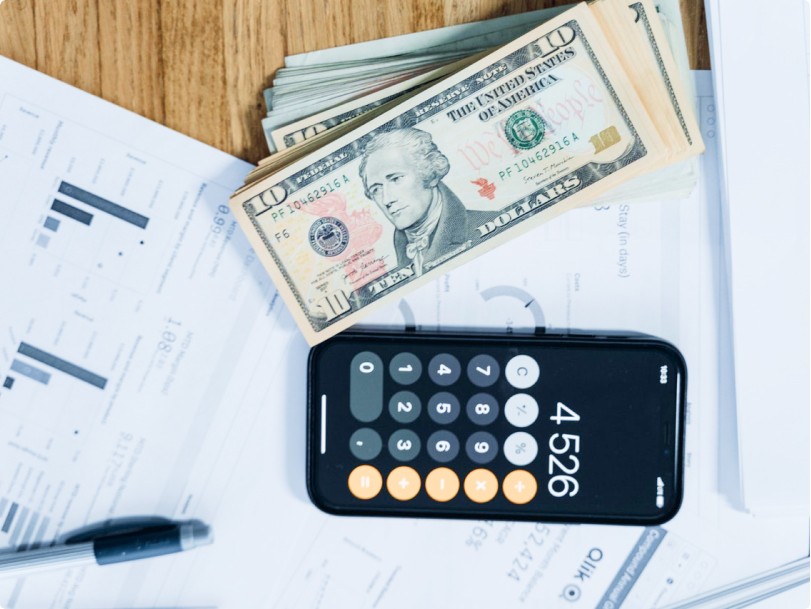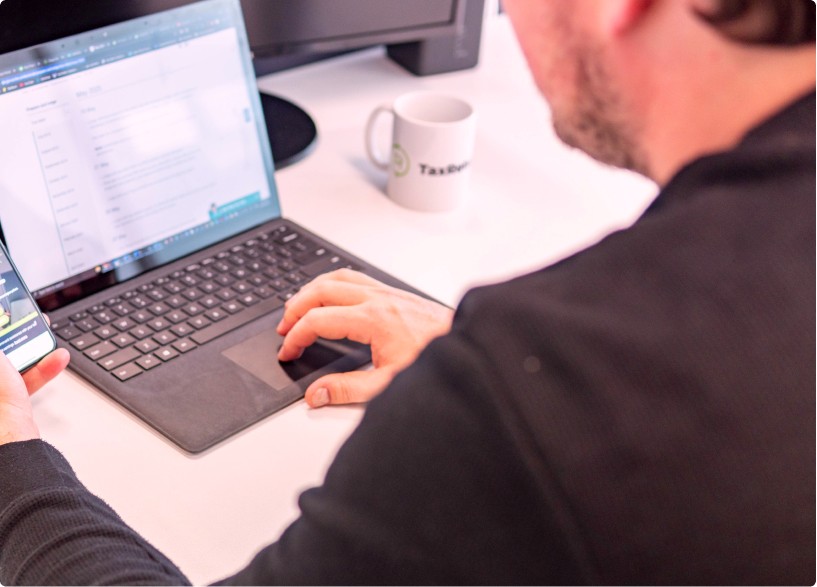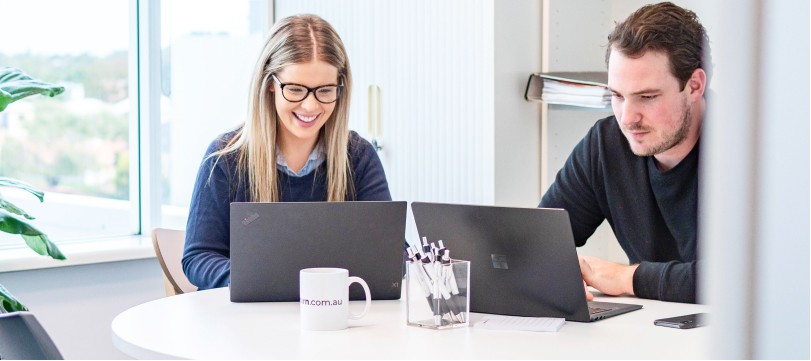When income tax season looms on the horizon, many Australians will pause to consider what has changed since last year. One of the changes many will find is income from a second job. Covid-19 related changes, side hustles, and the rise of the gig economy are leading many Australians into the uncharted waters of completing taxes for more than one income.
While some people question the worth of a second job that will change your tax obligations, adding another income can significantly improve the circumstances for a great number of people.
The Threshold and Your Second Job Tax
Making sure you understand the details of your tax situation after adding a second income is vital. You will pay taxes based on your income from all sources, including second jobs, side hustles, interest accumulated, and any other income stream.
Making sure your employer is deducting the proper amount of taxes can be challenging when you have second or third sources of income. If you have a single source of income, your employer will be able to determine the best amount to withhold. If your company over-deducts from your paycheck, you will get the money back as a refund. Should your company deduct too little from your pay, you will be in the unfortunate position of owing money to the ATO.
In the situation where you have a single source of income, you will benefit from the tax-free threshold. This means that the first $18,200 that you earn is tax-free. When you claim this, your employer will reduce the amount of tax that gets withheld during the financial year.
*It is vital to remember to check the box for the tax-free threshold for only one of your employers. This is typically the job where you earn the most. If you check the box for more than one employer, the tax-free threshold will be applied for both positions. If this happens, you will likely have too little tax withheld. You potentially could owe the ATO a significant amount of money, a situation you want to avoid if at all possible.
Taxes become more complex when you add another income. Typically, workers will get the tax-free threshold from their primary employer. Other income sources are taxed according to the progressive tax tables produced by the ATO. Some taxpayers feel this seems unfair, especially when you compare two similar cases.

Second Job Tax Rate Example
Hope earns $60,000 a year working at one job. Her employer will deduct tax and the Medicare Levy from Hope’s pay throughout the year. The amount comes to $11,047. This means Hope does not owe the ATO.
Jared’s employers follow the ATO guidelines. Jared also earns $60,000 a year. However, he works two jobs, and each pays $30,000. Jared’s first job deducts $2,692, and his second deducts $7,956. This amounts to $10,648. So, Jared is left with a tax bill of $1,299.
Lower Refunds and Owing Money

When taking a second job, many people are surprised by the fact that they get a significantly lower refund or end up owing the ATO. Even if you carefully follow the tax tables from the ATO, the total tax that you paid on your income may not be enough to cover the amount you owe because of the progressive tax rates.
To prevent owing or getting a smaller refund than usual, speak with your payroll department or the company’s human resources department. Ask them to deduct more money from each paycheck. You will have less cash in your pocket, but adjusting to less money is usually far less painful than owing the ATO.
Here are some commonly asked questions about getting a second stream of income and how it can impact your taxes:
What Tax Deductions Can I Make if I Am Running My Business or Side Hustle From My Home?

You will be eligible to make a number of tax deductions if you are running a business from your home. However, do your homework and be sure that you meet all of the criteria to claim these deductions. If not, the ATO may come calling to discuss your deductions.
- Internet
- Heating
- Cooling
- Phone
- Self-Education
- Advertising and marketing
- Professional services
If you have a dedicated office space, you may be able to deduct against your rent or the interest on your mortgage.
Before you begin preparing for these deductions, be sure you are in line with the following ATO requirements for claiming deductions.
You must have already incurred the expense. No speculation or probability based on previous years will work.
The expense can be claimed on only your business. The ATO will not let you claim the same expenditure on personal and business taxes.
You MUST be able to provide proof that backs up the expenses that you deduct.
Of these, people struggle with backing up their claims more than they do with the other two. Maintaining impeccable records of purchases, advertising, and other necessities will make getting your deductions faster and easier. When trying to keep your tax receipts, the classic envelope overflowing with receipts is an idea you should avoid.
Tips on Organising Your Tax Receipts for Keep ALL of your receipts
- Write on your receipts the business purpose of your purchase
- Scan all receipts and keep them on file for six years
- Avoid paying for business expenses with cash
- Take a picture of your receipts on your smartphone
- Do not rely on credit card statements because they often lack enough detail to prove a purchase
- Cancelled checks also lack the detail to confirm a business purchase
- Make and keep up with a business journal to highlight expenses
- Set aside time each month to look over your receipts
My Side Hustle Is More of a Hobby. Do I Need to Declare the Money I Make?
One of the first decisions you must make is determining if you are pursuing a hobby or if you are starting a business. You need to be clear about which path you are choosing so you can stay on the good side of the ATO.

If you decide you are dabbling in a hobby, you can enjoy sharing your skills with family, friends, and others in a casual manner. Do formal wear alterations, make simple mechanical repairs, or create one-of-a-kind art pieces. Keep in mind that while you will not owe taxes on your hobby money, you will not be able to make any tax deductions for the amount of money it takes to run your hobby.
However, if you decide you are starting your own small business, there are a number of boxes you must tick in order to comply with the ATO:
- Register your business name
- Get an Australian Business Number (ABN)
- Set up a way to keep records
- Open a bank account for the business
- Get the required licenses and permits
- Set aside money to pay for your personal income tax
- Choose a business structure -it is worth mentioning that although many small businesses begin as sole trader ships. In this business structure, your assets are vulnerable if something goes wrong and you are named in a lawsuit
- Get insurance for your assets
- Determine if you will need to register to pay Goods and Services
- Tax (GST) This is necessary if your business grosses $75,000 or more
Are There Tax Breaks for My Gig or Business?
There are tax incentives that you may be able to take advantage of when you are setting up your business. Be sure to check over these potential incentives carefully or consult with a tax expert. If you are conducting a feasibility study before you formally start the business, you can often claim professional advice, research the business’s viability, and development of a business plan.
What is a Progressive Tax, and Why Does it Impact My Second Income?
Australia has a progressive tax system, which means the more you earn, the higher your taxes. Australians who have a single stream of income benefit from the tax-free threshold. Because the first $18,200 that you make is not counted as a part of your taxable income.
However, for those who have more than a single income, the money earned at a second job or side gig is often enough to bump them into a higher bracket. This means the progressive tax rate will apply, and those with second incomes may get a smaller refund or owe the ATO.
The worst thing that may happen is you will have the extra money in the bank if you do not need to pay the ATO. For this reason, numerous tax experts suggest that if you have a second income, keep the money in a separate bank account and take care not to spend down to your last penny. By saving a portion of the money you get from a second job, gig, or side hustle, you will be prepared in case you owe the ATO when tax time rolls around.


Must I Contribute to a Superannuation if I Earn My Second Income Through Self Employment?
You are not legally bound to contribute to a super if you are earning extra money as a self-employed worker. However, setting aside money to add to a personal super fund is a wise choice.
Retirement is something that seems quite far away, especially for younger workers. It takes a strong bit of discipline to save money instead of spending it. In the long run, planning ahead and making personal super contributions with your after-tax money may also earn you a tax break. This is possible if the amount of your personal contributions passes the 10 per cent rule.
What Should I Do If I Think One of My Employers is Deducting the Wrong Amount of Taxes?
Typically, employers use software that makes tax deductions accurate. However, if you believe there is a miscalculation and your payroll department is not responsive to your request to review, reach out to a tax professional who can help you sort out the correct amount of money to be withheld.
It is understandably tempting to say nothing if you believe that your employer is not holding back enough money out of your pay. Everyone likes to see a bit more cash in their pocket, but in this instance, you may be surprised by a tax bill once the ATO is aware of the discrepancy.

